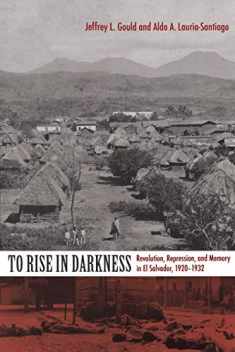
Accounting for Violence: Marketing Memory in Latin America (The Cultures and Practice of Violence)
ISBN-13:
9780822350422
ISBN-10:
0822350424
Author:
Leigh A. Payne, Ksenija Bilbija
Publication date:
2011
Publisher:
Duke University Press Books
Format:
Paperback
424 pages
Category:
South America
,
Americas History
FREE US shipping
Book details
ISBN-13:
9780822350422
ISBN-10:
0822350424
Author:
Leigh A. Payne, Ksenija Bilbija
Publication date:
2011
Publisher:
Duke University Press Books
Format:
Paperback
424 pages
Category:
South America
,
Americas History
Summary
Accounting for Violence: Marketing Memory in Latin America (The Cultures and Practice of Violence) (ISBN-13: 9780822350422 and ISBN-10: 0822350424), written by authors
Leigh A. Payne, Ksenija Bilbija, was published by Duke University Press Books in 2011.
With an overall rating of 4.0 stars, it's a notable title among other
South America
(Americas History) books. You can easily purchase or rent Accounting for Violence: Marketing Memory in Latin America (The Cultures and Practice of Violence) (Paperback) from BooksRun,
along with many other new and used
South America
books
and textbooks.
And, if you're looking to sell your copy, our current buyback offer is $0.3.
Description
Accounting for Violence offers bold new perspectives on the politics of memory in Latin America. Scholars from across the humanities and social sciences provide in-depth analyses of the political economy of memory in Argentina, Brazil, Chile, Mexico, Peru, and Uruguay, countries that emerged from authoritarian rule in the 1980s and 1990s. The contributors take up issues of authenticity and commodification, as well as the “never again” imperative implicit in memory goods and memorial sites. They describe how bookstores, cinemas, theaters, the music industry, and television shows (and their commercial sponsors) trade in testimonial and fictional accounts of the authoritarian past; how tourist itineraries have come to include trauma sites and memorial museums; and how memory studies has emerged as a distinct academic field profiting from its own journals, conferences, book series, and courses. The memory market, described in terms of goods, sites, producers, marketers, consumers, and patrons, presents a paradoxical situation. On the one hand, commodifying memory potentially cheapens it. On the other hand, too little public exposure may limit awareness of past human-rights atrocities; such awareness may help to prevent their recurring.
Contributors. Rebecca J. Atencio, Ksenija Bilbija, Jo-Marie Burt, Laurie Beth Clark, Cath Collins, Susana Draper, Nancy Gates-Madsen, Susana Kaiser, Cynthia E. Milton, Alice A. Nelson, Carmen Oquendo Villar, Leigh A. Payne, José Ramón Ruisánchez Serra, Maria Eugenia Ulfe


We would LOVE it if you could help us and other readers by reviewing the book
Book review

Congratulations! We have received your book review.
{user}
{createdAt}
by {truncated_author}




